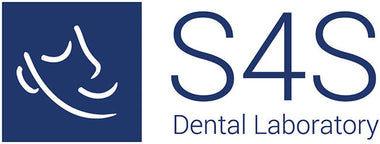WHAT YOU NEED TO KNOW ABOUT OBSTRUCTIVE SLEEP APNOEA
If you wake up feeling unrefreshed, find yourself excessively tired during the day, or have been told that you snore loudly or stop breathing in your sleep, you could be experiencing a condition called obstructive sleep apnoea (OSA).
It’s more common than you might think—and understanding the signs, causes, and treatments can make a huge difference to your health and wellbeing.
What is obstructive sleep apnoea?
Obstructive sleep apnoea is a sleep disorder where the muscles in the throat relax too much during sleep, causing the airway to narrow or completely collapse.
This leads to interrupted breathing, often followed by gasping or choking sounds. These episodes can happen hundreds of times a night, although you may not remember them.
Because your brain has to keep waking your body up to resume breathing, your sleep becomes broken and far less restorative than it should be.

Common signs and symptoms of OSA
Many people with OSA don’t realise they have it. Often, it’s a partner or family member who notices the signs first.
OSA can affect anyone, but it’s more likely to occur in those who are overweight, have a larger neck size, or a naturally narrow airway.
Other risk factors include smoking, alcohol consumption, muscle-relaxing medications, and ageing—particularly over the age of 40.
While it’s more commonly diagnosed in men, it also affects women, especially after menopause. Children can also develop OSA, often due to enlarged tonsils or adenoids.
Symptoms of OSA may include:
- Loud, persistent snoring
- Gasping, snorting, or choking noises during sleep
- Feeling very tired during the day, no matter how long you sleep
- Difficulty concentrating or remembering things
- Morning headaches
- Irritability or low mood
- Waking with a dry mouth or sore throat
Why it matters
Untreated OSA doesn’t just affect your sleep. It puts extra strain on your body, increasing the risk of serious health issues over time, such as:
- High blood pressure
- Type 2 diabetes
- Heart disease
- Stroke
- Depression and anxiety
It can also affect your quality of life—impacting energy levels, focus at work, relationships, and overall wellbeing.
How is OSA diagnosed?
If OSA is suspected, you may be required to do a sleep study. This usually involves wearing a small monitoring device at home overnight to track your breathing, oxygen levels, and heart rate while you sleep. In some cases, this may take place in a sleep clinic.
Once diagnosed, your healthcare provider can recommend a treatment plan based on the severity of your symptoms.
Treating OSA: CPAP machine
For OSA, the most well-known treatment is a CPAP (continuous positive airway pressure) machine.
This works by delivering a steady stream of air through a mask, helping to keep the airway open throughout the night.
While it can be highly effective, many people find the equipment uncomfortable, noisy, or difficult to use consistently.
For those with mild to moderate OSA, a custom-made oral appliance like the Sleepwell can be a more comfortable and user-friendly alternative.

What is the Sleepwell?
The Sleepwell is a type of Mandibular Advancement Splint (MAS) designed to treat snoring and mild to moderate OSA.
Worn during sleep, it works by gently positioning the lower jaw forward, preventing airway closure and reducing snoring.
Clinical trials have shown that 98% of patients found the Sleepwell device acceptable, highlighting its high level of patient comfort and satisfaction.
If you've been diagnosed with mild to moderate OSA and are seeking a comfortable, effective treatment, the Sleepwell might be the right option for you.
Don't remain undiagnosed
If you suspect you may have obstructive sleep apnoea, taking that first step toward diagnosis and treatment can feel daunting—but it’s absolutely worth it.
Restorative sleep is vital to your health, and effective treatments like the Sleepwell appliance can make a significant difference to how you feel each day.
Left untreated, OSA can impact far more than just your sleep quality, but with the right support, it’s a highly manageable condition.
Better sleep starts with the right advice. Speak to your nearest Sleepwell provider and take the first step towards a healthier, more energised you.
